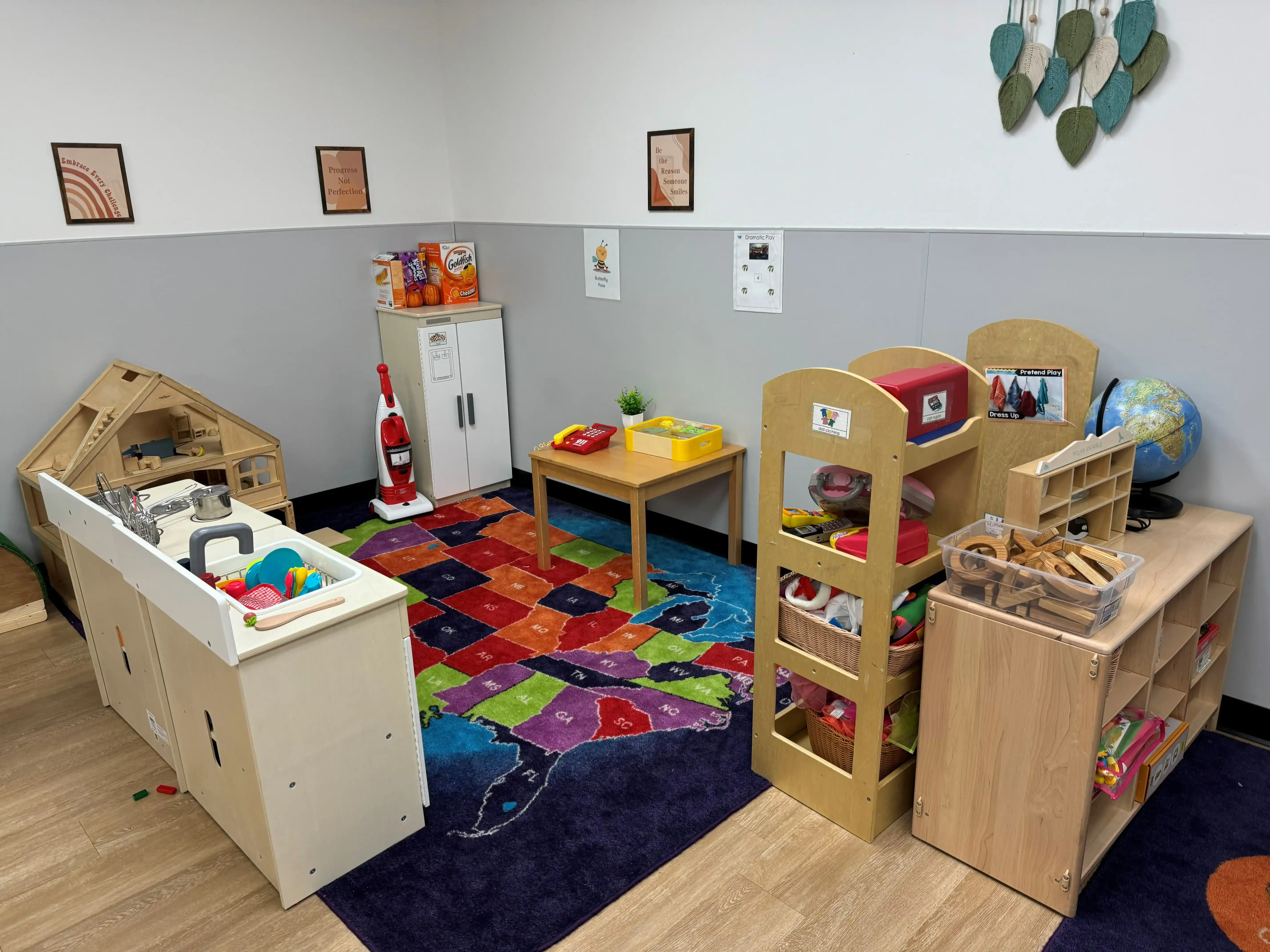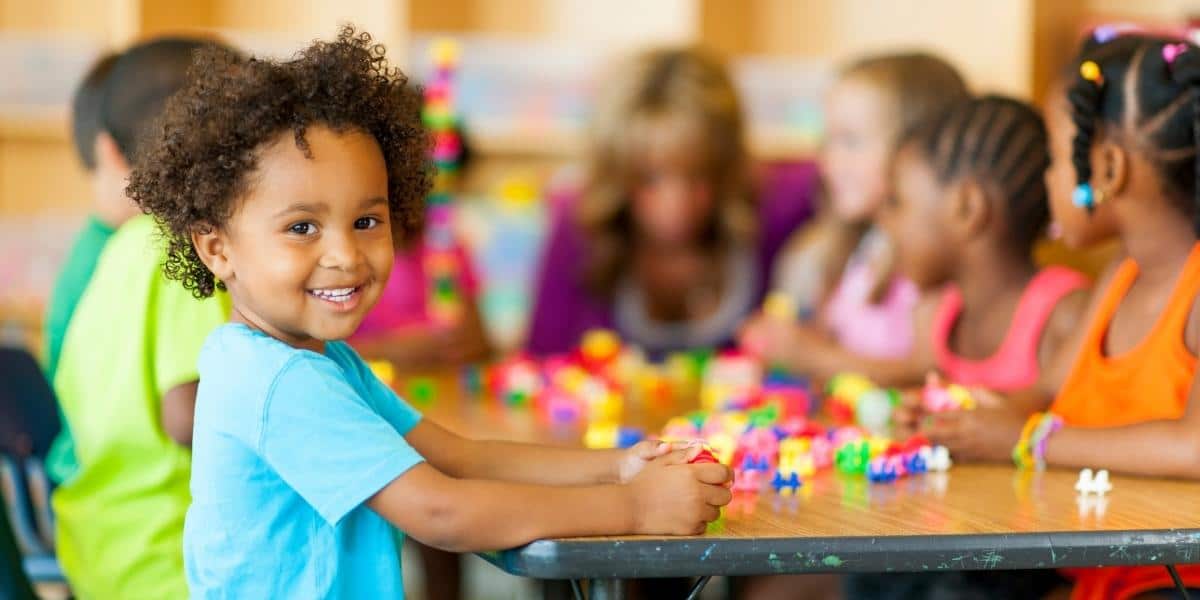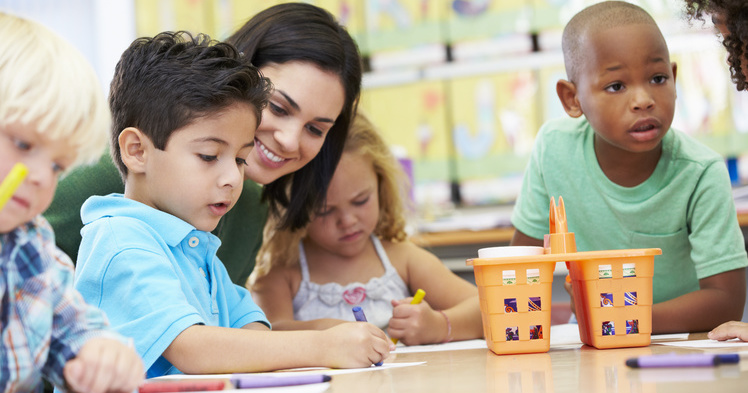Discover How Daycare North York Builds Secure and Stimulating Learning Environments
The Role of Day Care in Fostering Social Abilities and Early Discovering
Childcare functions as a significant setting for little ones, assisting in vital social interactions that advertise very early knowing. In this organized setting, kids engage with peers and caregivers, developing essential interaction and cooperation skills. As they browse play and various tasks, they learn to solve conflicts and construct psychological intelligence. Understanding the subtleties of these interactions reveals the extensive impact day care has on a youngster's development, shaping their future connections and scholastic readiness. What specific abilities do children acquire in this setting?
The Relevance of Social Interaction in Daycare
While several parents identify the value of early childhood years education and learning, the duty of social interaction in daycare is commonly taken too lightly. Childcare setups give children with indispensable possibilities to involve with peers, cultivating necessary social abilities. Throughout these formative years, children find out to browse numerous social characteristics, such as sharing, participation, and problem resolution. Engaging with diverse age teams and personalities improves their capability to adjust to various atmospheres and establish compassion in the direction of others.

Structure Interaction Abilities Via Play
Play offers as an effective tool for kids to develop crucial communication abilities in day care setups. With different play activities, children engage in discussions, share their ideas, and discover to listen to others. Role-playing games, for example, urge them to make use of language in various contexts, advertising vocabulary growth and understanding of social hints.

Additionally, narration throughout play enables youngsters to share ideas and emotions, helping them establish narrative skills and confidence in their spoken expressions. Overall, play not just serves as a satisfying leisure activity but additionally as an essential platform for developing the communication abilities necessary for successful social communications in later life.
Urging Teamwork and Teamwork
Teamwork and teamwork are essential skills that kids can grow in daycare atmospheres. Via numerous group activities, such as constructing projects or joint games, kids find out to share duties and job toward typical objectives. These interactions promote an understanding of the value of listening to others, negotiating roles, and jeopardizing when necessary.
In day care settings, caretakers frequently produce chances for children to participate in team effort by motivating them to take part in group tasks. This not only aids youngsters develop social bonds but also grows a feeling of belonging and community.
As they browse these participating experiences, kids acquire important understandings into the dynamics of dealing with peers. They find out to value diverse viewpoints and identify that each member adds uniquely to the team effort. Eventually, these very early lessons in collaboration and synergy lay the foundation for healthier relationships and efficient partnership in future social and academic settings.
Structured Knowing Activities and Cognitive Advancement
Structured learning tasks play an integral function in cultivating cognitive development in children (Child Care Center). These activities, which consist of problems, narration, and hands-on experiments, stimulate crucial reasoning and analytic abilities. In a day care setting, organized knowing motivates youngsters to involve with their peers, enhancing their capability to process details and recognize various concepts
With led play and interactive jobs, children create fundamental skills such as numeracy and literacy. For circumstances, tasks focused around numbers can help kids realize mathematical concepts, while storytelling enhances language purchase and understanding. Additionally, structured learning permits teachers to analyze developing development and tailor activities to individual learning demands.

Incorporating a diverse variety of organized tasks not just promotes cognitive growth but additionally prepares youngsters for future scholastic success. By supplying a well balanced environment that fosters exploration and questions, childcare programs play a vital function fit the cognitive capabilities of young learners.
Promoting Emotional Knowledge and Self-confidence
Psychological knowledge and self-confidence are essential components of a kid's growth, enhancing the cognitive skills cultivated through structured learning activities. In daycare setups, kids are offered with opportunities you can try these out to share their emotions and take part in social communications, which are important for developing psychological understanding. Via assisted play and group tasks, children find out to determine their sensations, acknowledge those of others, and create empathy.
Interaction with peers and caretakers assists to cultivate self-worth and durability. Positive support and encouragement from grownups empower youngsters to take dangers and face obstacles, promoting a feeling of accomplishment. As they navigate social characteristics, children develop self-confidence in their capabilities to communicate, team up, and solve disputes - Daycare North York. This nurturing environment enables for the gradual advancement of psychological intelligence, which is important for future social relationships and overall wellness. Therefore, daycare plays a considerable function in cultivating both psychological intelligence and confidence in little ones
Regularly Asked Inquiries
How Can Parents Select the Right Day Care for Their Youngster?
Parents ought to take into consideration aspects such as area, staff certifications, safety standards, educational program, browse around here and reviews from other moms and dads when picking the right childcare for their child, guaranteeing it aligns with their kid's developmental demands and household worths.
What Age Is Best for Starting Daycare?

Just How Does Daycare Effect Kid's Habits in the house?
Daycare usually positively influences children's habits in the house by improving social abilities, advertising independence, and motivating psychological policy (Child Care Near Me). Consequently, children might display improved interaction and participation, causing even more harmonious family members characteristics
Are There Any Kind Of Disadvantages to Childcare Presence?
Yes, there are downsides to daycare participation, consisting of possible splitting up stress and anxiety, direct exposure to illnesses, and inconsistent caregiving. These aspects can influence a child's emotional wellness and change at home, impacting general household characteristics.
How Can Moms And Dads Support Social Abilities Learned at Day Care?
Moms and dads can sustain social skills discovered at childcare by facilitating playdates, encouraging participating tasks, modeling favorable communications, discussing feelings, and reinforcing sharing and communication in your home, consequently boosting their child's social development and self-confidence.
Daycare offers as a significant environment for young children, assisting in crucial social communications that advertise very early understanding. Daycare settings offer youngsters with vital possibilities to involve with peers, promoting vital social skills. Play offers as a powerful medium for kids to develop essential communication abilities in daycare settings. In childcare setups, children are provided with opportunities to reveal their feelings browse around this site and involve in social interactions, which are critical for building psychological understanding. Day care commonly favorably affects kids's actions at home by enhancing social abilities, advertising freedom, and encouraging psychological guideline.